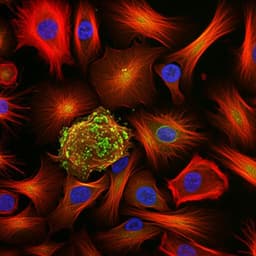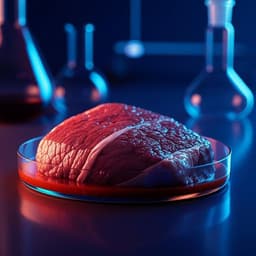
Medicine and Health
Single-cell guided prenatal derivation of primary fetal epithelial organoids from human amniotic and tracheal fluids
M. F. M. Gerli, G. Calà, et al.
This groundbreaking research led by Mattia Francesco Maria Gerli and colleagues unveils a novel method for isolating viable epithelial stem cells from human amniotic fluid. These cells demonstrated the ability to form organoids that mimic the small intestine, kidney tubules, and lungs, including those with congenital diaphragmatic hernia features. This innovative approach opens new avenues for organoid derivation during pregnancy, paving the way for personalized therapies and regenerative medicine.
Related Publications
Explore these studies to deepen your understanding of the subject.







